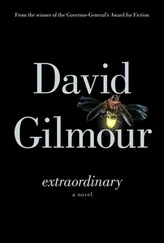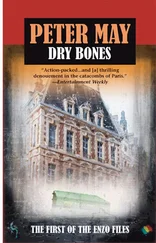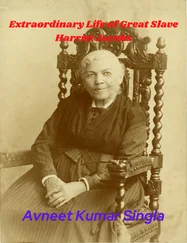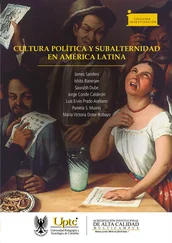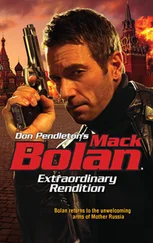At the end of the final scene, the instruments, and eventually the singers, would drop out one by one over the span of twelve minutes, until only a timpani and a traditional string quartet remained, just a hair out of tune, to saw over a folk-influenced section that vacillated between a funeral march and a spirited danse macabre, then close with a gentle lullaby. The opera didn’t end as much as slowly, painfully die.
Melanie’s violin, hidden in the rear of the section, would be the second-to-last thing the audience heard before the drums petered out into oblivion and presumably left the crowd enraptured and uncertain. She had been made to understand that she was chosen for the part not due to her abilities, but because her expensive Austrian violin possessed the perfect tone the part required. But so what? That breathless instant of tranquility right before the applause came would justify the endless rehearsals, the harassment and belittlement at the hands of that Napoleon-complexed conductor. Even Melanie had to give Harkályi some credit — the effect was numbing in its gracefulness. At least that was how it had sounded at rehearsal.
5.
The taxi crossed Margit Bridge into Buda but couldn’t get anywhere near Batthyány Square. The speakers immediately behind Melanie’s head rattled with a warped cassette of frenetic Gypsy music, puking up tones no violin should ever be forced to make. The driver pulled to a stop at a makeshift police barricade and lit a cigarette. The stink competed with three pine-tree air fresheners dangling from the rearview mirror. Melanie felt vaguely queasy again. Two bored motorcycle cops in jackets of blue and white leather redirected traffic. The taxi driver rolled down his window for an explanation and a blast of cold air. More resigned than satisfied, the driver punched the meter and turned around with a ticket for 2,500 forints. Melanie handed him a five-thousand, but he shook his head. “No change,” he said. He opened his leather accordion wallet to demonstrate the vast empty vistas contained therein — a common enough ploy among Budapest cabbies. At one time she would’ve let him take the fiver. Instead, she fished out a half dozen hundred-forint coins and handed them over. “Köszönöm szépen,” she said sweetly, and stepped out into the cold. She half-expected him to get out and chase her down, but the bleating music faded behind her.
Her breath looked like cigar smoke, which was also approximately how her clothes smelled. She was five blocks from the concert site and already running late. Wooden, blue-painted barriers blocked the streets, strangely free of the parked cars that typically clogged the sidewalks. A precaution, she surmised, intended to protect the political dignitaries who would be attending the opera. The police had shut down the entire neighborhood, and pairs of patrolmen stood around smoking and cursing on every corner. They never asked for her papírok. Unlike the majority of the expats she knew, Melanie’s documents were both legit and legal.
Batthyány Square was a small city block-sized park across the Danube from the parliament building. Bums and drunks typically overran the benches and the subterranean red line metro station, secured for the afternoon, and would do so again once the camera crews and suits dispersed back up to the hills. Canapé tents and banks of lights filled the square, around which a fleet of shiny black Mercedes formed a double-parked ring. Many boasted diplomatic plates and ambassadorial flags.
On the southern end of the square stood a Baroque-era church, freshly painted for the occasion. Some accounts said that Beethoven personally conducted the premiere of his König Stephen overture in there, which, according to one historian, explained how the building survived two World Wars and the Soviet occupation. Melanie was in awe, nervous as all hell, again, at the prospect of personally meeting the spirit of Ludwig van Beethoven. And Mahler had once conducted for a season in the opera house, and that enlivened for her, at least slightly, even the most tedious reruns of yet another Erkel opera. She would sit in the pit and watch their little bastard of a conductor swirl his baton around and try to imagine old Gustav in the same position. Did his musicians, like they did nowadays, roll their eyes and make monkey ears behind his back? She imagined so. But Beethoven! The anticipation of performing in a church in which Beethoven himself brought to life those otherworldly notes and rests felt akin to walking in the footsteps of some true messiah. The promise of literal inspiration compelled her to get inside, to get in tune — and then correctly out of tune again. Because the recording engineers and the Hungarian secret service had occupied the church for the past week, the orchestra was never given the opportunity to rehearse there. She didn’t know what to expect from the acoustics, from the aura.
A red carpet ran from the small fountain at the center of the square, across a street that was usually blocked by a line of pollution-spewing BKV buses, and down three steps into the church. The blinding-white exterior jumped out in extreme contrast to the dingy Angelika kávéház next door and, to the right of the square, the decaying redbrick railway station now owned by an Austrian supermarket conglomerate. A few soldiers milled around, guns drawn, sipping from Styrofoam cups of coffee, or something stronger. Portable outdoor heaters contributed to the overall merriment of the event.
According to the gossip filtering through the pit during rehearsals, the archbishop of Esztergom-Budapest had offered the orchestra the use of this church only after a three-part exposé in HVG elaborated the extent to which the Hungarian Catholic Church had collaborated with the Nazis. His eminence was expected to attend the premiere and, from the look of the security arrangements, so were the prime minister and perhaps even the president. Given the Hebraic flavor of Harkályi’s oeuvre, no one of authority had seriously considered the national cathedral up on Castle Hill or even Saint Stephen’s Basilica for the event.
Melanie’s security clearance was going to depend upon her ability to find the orchestra’s stage manager. That the party outside continued unabated provided a reason to stop worrying about being late. The sight of the freely flowing alcohol brought flashbacks to the night before, to the taste of the vodka no doubt continuing its path through her bloodstream. She was sweating under her collar when she heard someone call her name: “Melanie, hey!”
Woozy and distracted as she was, it actually came as an incredible relief to see Nanette, who gave her a sloppy public kiss. “You’re here?”
“The prime minister’s here, or coming here, so I got sent over. You didn’t think I’d really miss your television debut? I wanted to surprise you. Here, I got it all scoped out.” She was visibly drunk. She took Melanie by the hand and led her through the celebrating throngs. “Sign in and you get an ID card. The security’s tight.”
“I didn’t get my haircut.”
“I fucking knew you wouldn’t, but I’m glad.”
“You’re not going to give me grief about it?”
Nanette squeezed her hand. “I might, but not today. You can’t take your phone backstage. I can drop it in my bag. If those metal detectors fuck up my film, I’m gonna kill someone. I guess I shouldn’t say that so loud around here.”
Poised between the intense Hungarian winter and the artificial suns alighting the square, between her childhood and her adult life, between her unrequited wanderlust and her blossoming desire to get back to Boston, Melanie remembered why she once loved Nanette so much, however briefly.
Nan brought her around the church and down Fő Street, which was also devoid of motor traffic and emptied of parked cars. A tree of intensely bright lights blocked the road and shone upon the modest, recently Windexed stained glass. Beyond the church they found a kind of truck trailer with a ticket window built into the side. A well-dressed will-call line snaked down the block, but Melanie stepped up to the window marked “Zenészek” and showed them her papers. A man in an Eskimo hood and mittens checked his clipboarded list and reluctantly handed her a photo ID badge to wear around her neck with instructions to remove it only once she got seated onstage. It was a terrible, living-dead picture, one of four taken in a Nyugati Station photo booth. He also gave her a ribbon of red, white, and green and ordered her to pin it over her heart.
Читать дальше


